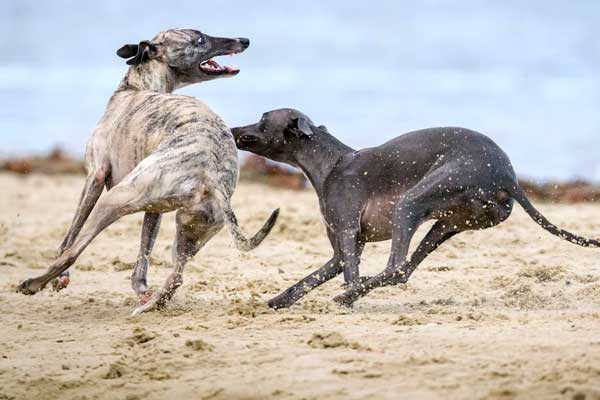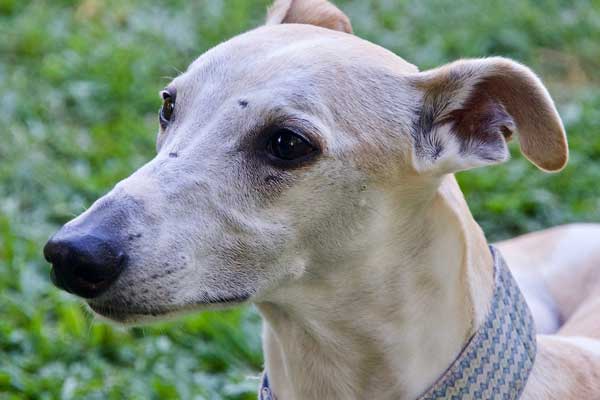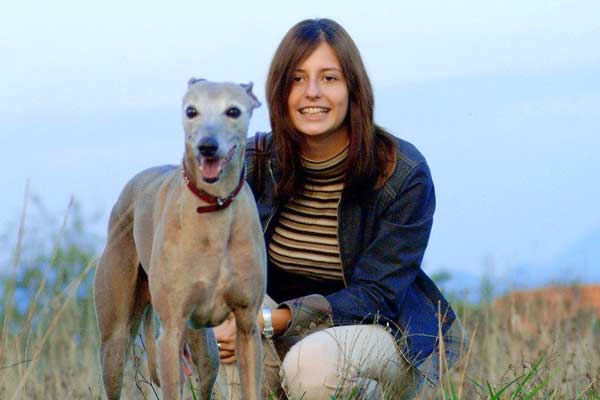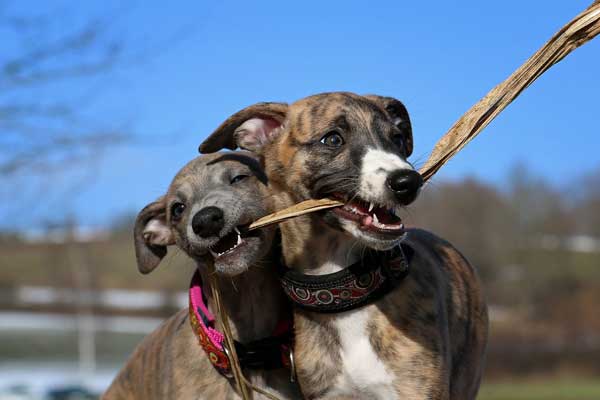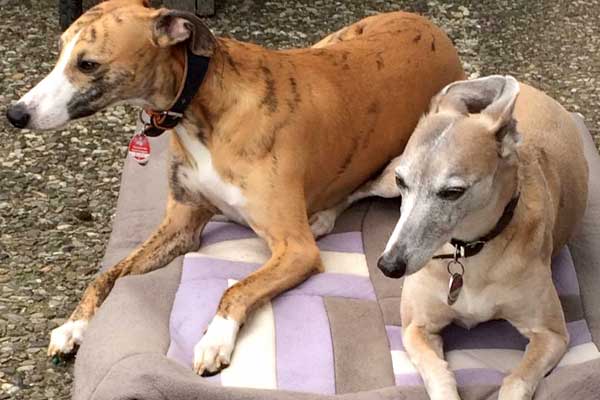Are Whippets Aggressive? Unleashing the Truth
Whippets are one of the most well-mannered breeds of dogs. They are gentle, affectionate, and loyal companions and are widely known for their easy-going nature and good temperament. However, there has always been a lingering question that has been on everyone’s minds: Are Whippets aggressive?
To answer this question, we need to understand why a Whippet can become aggressive and look into ways to address and prevent it. So let’s dive into it and see what we can find out.
Are Whippets Aggressive?
No, Whippets are generally gentle, friendly, and not often prone to aggression. However, as with any dog breed, they can display signs of aggression under certain circumstances. The primary cause of Whippets’ aggression is usually due to a lack of proper socialization and inadequate understanding from their owners.
For example, if a Whippet is startled or scared by something sudden, it may lash out with a growl or bark. In other cases, poor training from their owners can result in the Whippet displaying signs of anxiety, leading to aggressive behavior such as snarling, snapping, and biting.
Fortunately, most Whippets will remain calm and relaxed in most situations with the appropriate training and socialization. As an owner, it is crucial to understand your dog’s body language so you can provide reassurance when needed.
Additionally, create a structured daily routine that suits your pet’s needs; regular exercises with positive activities, such as playtime, will help keep them happy and prevent any possible aggressive behaviors from developing.
Common Reasons for Whippet Aggression
So why do Whippets become aggressive in the first place? There can be several causes, but the most common ones are listed below:
- Lack of Socialization: A Whippet must be socialized appropriately to avoid becoming scared or anxious around people and other animals, leading to aggression.
- Fear: If a Whippet feels scared or threatened, it may defend itself or its territory aggressively.
- Illness: If a Whippet is sick or injured, it may become more aggressive than usual to protect itself from further harm.
- Territoriality: Some Whippets are naturally territorial and may become aggressive if they feel their territory is threatened.
- Inadequate Training: A Whippet needs to be trained correctly or given clear expectations to avoid becoming confused and frustrated, which can cause aggressive behavior.
Understanding these common causes, you can better identify and address potential aggression in your Whippet.
How to Socialize a Whippet?
Socializing a Whippet is an essential part of preventing aggression. To socialize a Whippet, start slowly introducing them to new people and environments slowly and positively. This can help them become comfortable with different situations and people, which can help prevent any aggression.
You should also make sure to reward your Whippet for good behavior. This will help them understand that good behavior is rewarded and encourage them to act more positively.
It is also essential to understand the signs of stress in a Whippet. If a Whippet feels overwhelmed or scared, it may act aggressively. Recognizing these signs early can help you address potential aggression before it gets out of hand.

Signs of Stress in a Whippet
There are several signs that a Whippet is feeling stressed or scared. These include:
- Pacing: If a Whippet feels anxious or scared, it may start to pace back and forth. This can be a sign that they are feeling overwhelmed or uncomfortable.
- Growling: If a Whippet feels threatened or scared, it may growl to communicate unhappiness.
- Barking: If a Whippet feels scared or threatened, it may bark to warn of the perceived threat.
- Hiding: If a Whippet feels scared or overwhelmed, it may try to hide from the perceived threat.
- Aggression: If a Whippet feels threatened, it may act aggressively to protect itself.
By understanding the signs of stress in a Whippet, you can address any potential aggression before it gets out of hand.
How to Reduce Aggression in Whippets
If a Whippet is showing signs of aggression, there are several steps you can take to help reduce it.
- Providing structure for your Whippet is essential in helping them to understand acceptable behaviors. Establishing rules, routines, and expectations, such as daily walks and potty breaks, will help your Whippet understand what is expected of them and can reduce aggression due to confusion or lack of structure.
- Socialization: Socializing your Whippet with other animals to help them become more comfortable in new environments, which can prevent aggression.
- Training: Implementing positive reinforcement methods during training can help teach appropriate behaviors while discouraging aggressive behavior. Rewarding properly followed commands can encourage the desired behavior without making the Whippet feel threatened or criticized for not following a command correctly – these techniques are more effective than relying on punishments.
- Avoid Unfamiliar Situations: As much as possible, limit your Whippet’s exposure to situations or people that may trigger aggressive behaviors. A safe and familiar environment will make your Whippet feel more secure and less likely to act aggressively.
- Be Firm but Kind: When dealing with aggression in your Whippet, it’s essential to be firm yet compassionate. Responding with a calm and collected demeanor can help positively reinforce good behavior. Try not to yell or get frustrated; instead, use a low but intense tone when correcting improper behaviors.
- Exercise: Consistent exercising can help a Whippet understand what is expected of them, which can help reduce aggression.
- Avoid Punishment: Punishing a Whippet for aggression can cause them to become more fearful and aggressive, so it is crucial to avoid this.
Understanding these steps can help reduce any aggression in your Whippet.
